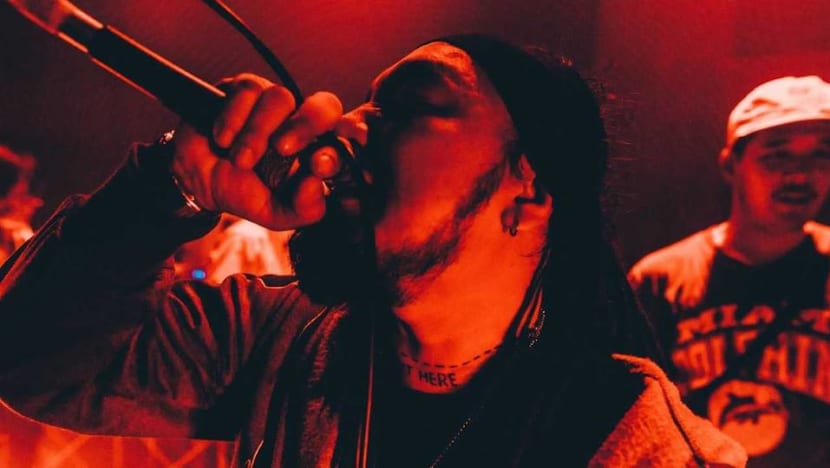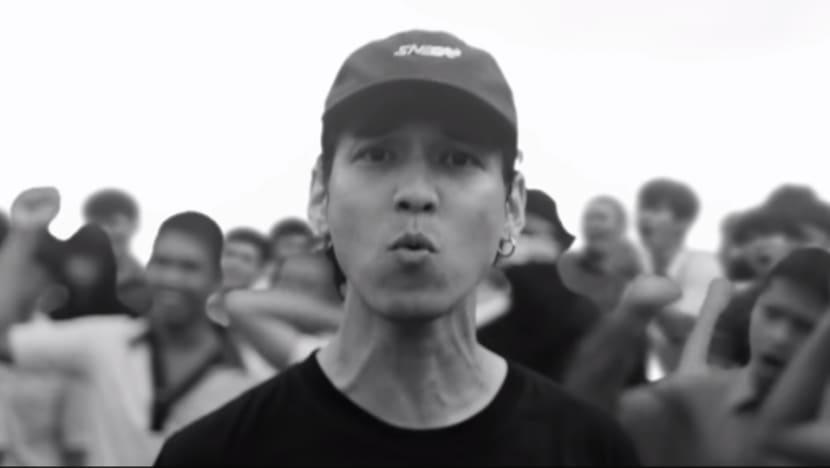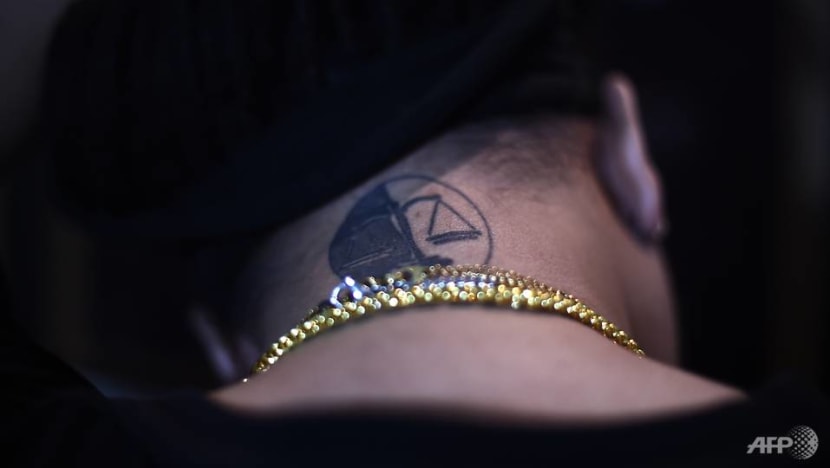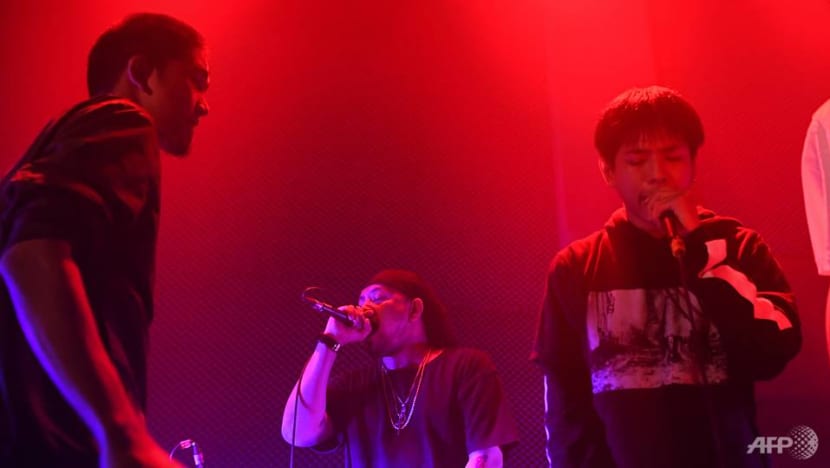Celebrated overseas, followed at home: Thailand’s activist rappers vow to keep up their campaign

Pratchayaa Surakamchonrot, one of the founding members of Rap Against Dictatorship. (Photo: Supplied)
BANGKOK: Nutthapong Srimuong and Pratchayaa Surakamchonrot are scared in their own country.
The two Thai rappers - more commonly known by their performing names Liberate P and Jacoboi - have poked the beast of officialdom and been left watching their backs.
The young men - principle parts of the Thai protest collective called ‘Rap Against Dictatorship’ - have chosen this path as agitators against a government they consider invalid. The decision to draw the ire of authorities at a time where free speech is a delicate commodity was a deliberate one. They quickly became a phenomenon. And a target.
Their viral hit Prathet Ku Mee - translated as What My Country’s Got - was a bold, direct and unambiguous beat-driven attack targeted at some of Thailand’s most powerful players. The song, spat with venom by 10 different rappers, has been played nearly 70 million times on YouTube since its release in October and even reached the ears of a disapproving Prime Minister Prayut Chan-o-cha.
Its lyrics label Bangkok a “killing field”, the parliament a “soldiers’ living room” and call the nation’s leaders corrupt - all taboo subjects. Though threatened with immediate arrest, the song’s overwhelming popularity kept the rappers out of jail and the song ubiquitous online.
The lyrics prompted the prime minister to speak out: "Use your judgement," Mr Prayut said, according to local media reports. "Is this song accurate? Is your life really that hard? Are we really that dictatorial? Don’t let anyone distort the truth. Just ignore it. I ignored it. Why should I care?"
However, while the prime minister dismissed the significance and legitimacy of the song, the people behind it remain concerned.
“For me, I am scared, especially when the song reached its pinnacle. The group is scared, too,” Nutthapong told CNA. “We were scared that there might be people who dislike us and it could lead to chaos or physical attack,” he said.
“It’s normal for activists to be followed,” Pratchayaa added. ”I even knew people that followed me. I feel indifferent about being followed but I am a bit worried when it comes to a physical attack.”
READ: Thai exiles in fear after murders and disappearances
HUMAN RIGHTS RECOGNITION
Thailand has been unfriendly terrain for anti-authority figures in recent times. The situation is unpredictable and precarious. In recent weeks, several activists have been singled out in street assaults by masked assailants, which they blame on military and police actors. Other exiled dissidents have been kidnapped and killed. All accusations of involvement have been denied by the authorities.
It follows a controversial and long awaited national election in April, where new electoral laws introduced by the military caretaker government tilted the result in its favour. Rap Against Dictatorship’s more recent track ‘250’ targets Thailand’s handpicked senators, a 250-person bloc that guaranteed the election of General Prayut to the nation’s top job, one he had held de-facto since 2014 as coup leader.
READ: After disputed election, Thailand expected to keep military leader as PM
The return to open democracy has been a central demand of the group’s musical activism. When the election failed to deliver the change they wanted, it poured fuel onto their ambitions to continue the struggle. They plan to release a new track in October.

“There were many people who cast their votes and they did not get the government they wanted. These people see now that their votes are important,” Pratchayaa said.
“There are more people expressing their opinions and their disapproval. Of course, their opinions and expressions might not be strong and powerful now but I think it is a good sign that people voice opinions about their government and issues in their country.”
It is an endeavour that, while spawning danger in Thailand, has earned accolades for Rap Against Dictatorship overseas.
In June, they were awarded the Václav Havel Prize for Creative Dissent by Human Rights Foundation for “proving the power of standing together against tyranny”. When they took the stage in Oslo and held aloft their trophy they joined former winners like Chinese artist Ai Weiwei, Myanmar's Aung San Suu Kyi and North Korean activist Park Sang-hak. It elevated them to an unforeseen platform and they took the chance on stage to deliver a message to Thailand’s rulers.
“We believe the fight is not ending. The people who are hungry for justice and for the power to govern themselves have shouted loud and clear. For the dictators, sorry. We’re hungry,” Pratchayaa said during a barbed acceptance speech.

'I WAS ANGRY'
In the video for ‘Prathet Ku Mee’, the anger is palpable in the look and delivery of each artist. Nutthapong says it is a grinding frustration of inequality and powerlessness that spurs his work.
“I always use my emotions to inspire and push me to write songs. Personally, I was angry,” he said. “We want to raise awareness and wake people up when it comes to politics.”
The Rap Against Dictatorship project was born out of a collective anger with the direction the country was taking, following the military coup five years ago. The group - a loose collaboration of 10 rappers - also reflects history, with the background of the video featuring a reenactment of the infamous hanging of students during a deadly military crackdown in 1976.
Despite the risks, they did not question using direct and derogatory language to make their point.

“We think of as ourselves as a model - I am not saying that we are a good model - but if we can say this, anybody else can, too. We are still sitting here and not arrested or harmed, so, anybody can speak,’ Pratchayaa said.
“We don’t accept dictatorship. Dictatorship for us isn’t only about a military government. The dictatorship is an ideology. It can be in any place, in family or in university.”
Unlike their song verses, rapped individually, Nutthapong and Pratchayaa are in harmony when asked if they will be pressured to stop their activism.
“We will keep doing it.”
Additional reporting by Ryn Jirenuwat.














